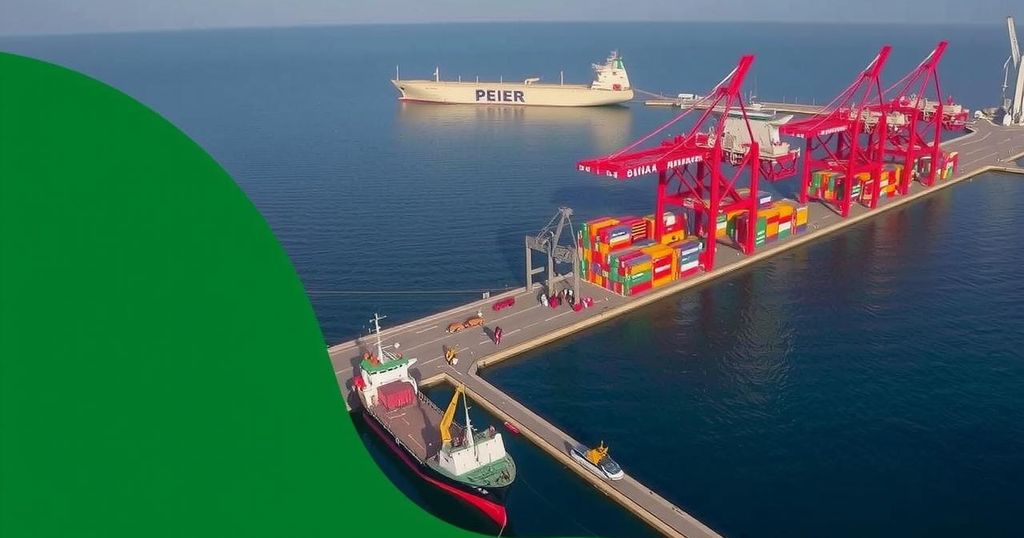Sudan’s Strategic Cancellation of UAE Port Deal Reflects Sovereignty and Crisis Management
Sudan has canceled the port deal with the UAE in protest against alleged UAE support for the RSF amid ongoing conflict. This decision seeks to assert Sudan’s sovereignty and may reduce foreign influence. Residents have welcomed the move in hopes of enhancing local development, against the backdrop of a severe humanitarian crisis affecting millions.
Sudan has officially annulled a memorandum of understanding with the United Arab Emirates (UAE) regarding the development of the Abu Amama port on the Red Sea coast. This decision appears to be a response to accusations against the UAE for allegedly supporting the Rapid Support Forces (RSF), a paramilitary group currently engaged in conflict with Sudanese government forces. Sudan’s Finance Minister, Jibril Ibrahim, emphasized during a press conference that this cancellation is meant to uphold Sudan’s sovereignty, asserting that Sudan shall not cede any part of its coastline to foreign entities. Amid increasing tensions, the cancellation signals a potential shift in Sudan’s foreign relations, aimed at diminishing UAE’s influence within the country. The move occurs against a backdrop of the deteriorating humanitarian situation in Sudan, which has experienced significant violence and displacement since the conflict escalated in April 2023. Local residents in eastern Sudan, particularly in Port Sudan, welcomed the cancellation, expressing hopes that the government will redirect efforts toward local infrastructural development and job creation. The geopolitical ramifications of this decision are noteworthy, as they could affect Sudan’s participation in regional dynamics involving Saudi Arabia and Egypt, both of which have vested interests in the Red Sea. This development calls for caution as Sudan navigates complex political factions domestically while grappling with external pressures amid its ongoing humanitarian crisis.
The decision to cancel the port deal with the UAE stems from recent tensions surrounding allegations of UAE support for the RSF, complicating Sudan’s political landscape. Previously, in December 2022, Sudan had entered into a $6 billion agreement with the UAE, which included the establishment of a free trade zone. However, as internal conflicts have intensified and humanitarian conditions have worsened, the Sudanese government has reassessed its foreign commitments and sought to reaffirm national sovereignty, particularly in the context of foreign investments that may prioritize external interests over local societal benefits.
In summary, the cancellation of the port deal with the UAE is both a protective measure of national sovereignty and a strategic political maneuver. While it reinforces Sudan’s desire for autonomy amidst external pressures, it also reflects the urgent humanitarian crises facing the nation. The government’s challenge will be to balance the varied domestic and foreign interests while focusing on solutions that effectively address the needs of the Sudanese population, ensuring that national unity remains paramount.
Original Source: www.theeastafrican.co.ke




Post Comment